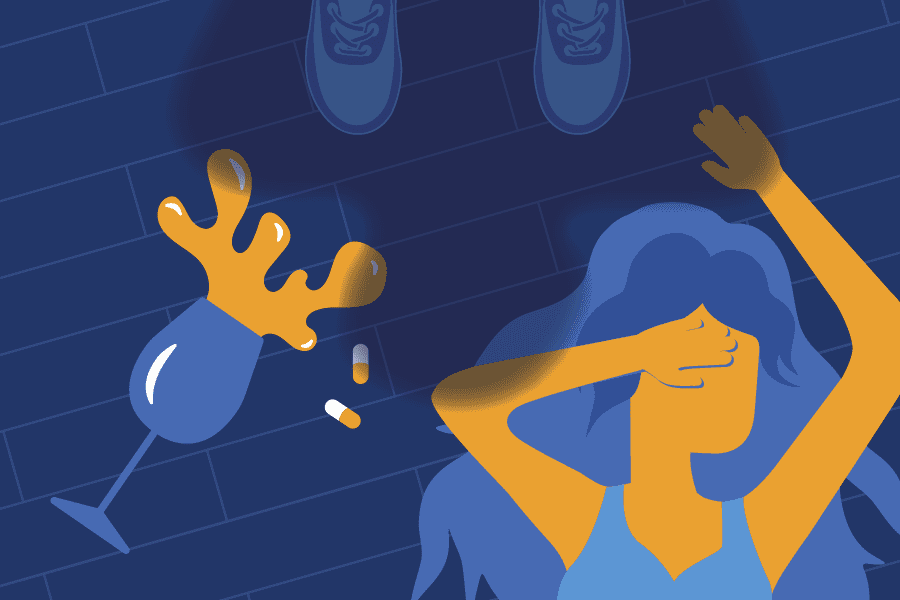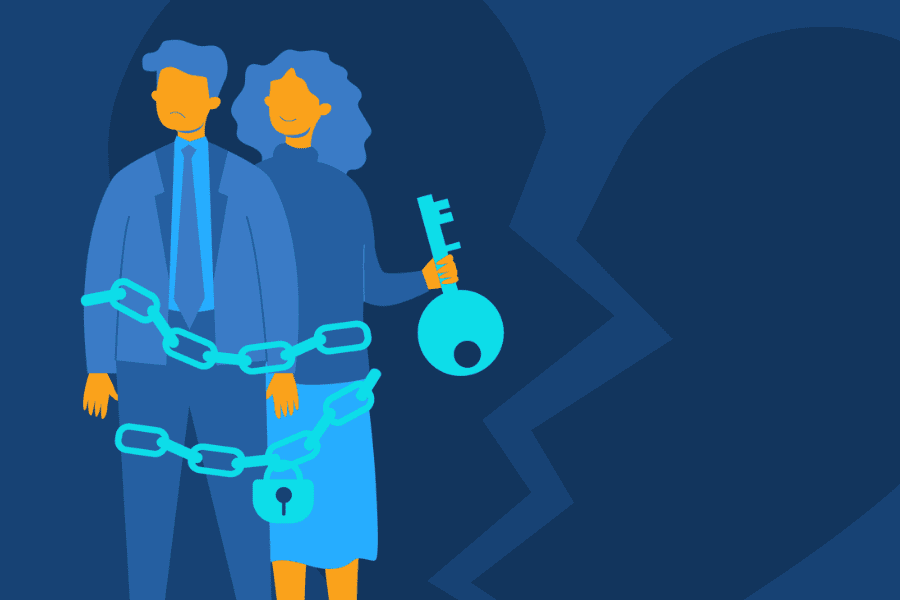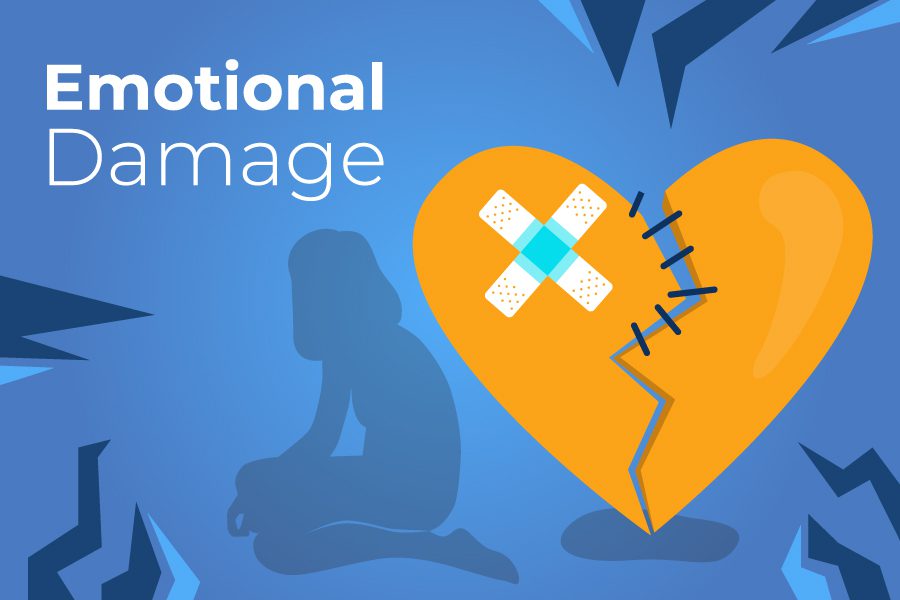What is Trauma?
Causes of Trauma
What kinds of events lead to trauma? The following events frequently necessitate treatment for young adults to be able to recover:
- Accidents – Car accidents and other types of serious accidents cause major trauma.
- Sexual assault or abuse – Rape, sexual assault and sexual abuse are major traumatic events.
- Violence – A robbery, assault, active shooter situation or witnessing a violent event can cause trauma.
- Major injuries or other medical issues – The news that you or a loved one has a life-threatening medical condition can be traumatizing.
- Natural disasters – Fires, tornados, hurricanes, earthquakes and similar events bring on traumatic effects.
- Military combat – Young adults who have seen combat in the military often struggle with recovery from trauma.
- Sudden loss of a loved one – No one is ready for the unexpected death of a friend or family member; the recovery from these kinds of events can take years.
Effects of Trauma
Traumatic experiences activate your fight-or-flight response and send your body into a state known as emergency mode. Because the body thinks its survival is at stake, it goes into a condition of heightened arousal and expends extraordinary amounts of adrenaline and energy.
Once the event is over, the body switches out of emergency mode and begins to recover. After a traumatic event, victims feel exhausted because their body has used up so many of its resources.
For many traumatic situations recovery takes a month or less, but for some, it can take years. No matter the duration, the effects of trauma on the body and mind are intense while they last. Victims can demonstrate any of the following symptoms:
- Exhaustion: Trauma victims tend to need more sleep than usual.
- Anxiety: Panic attacks and other symptoms of anxiety may emerge.
- Emotional volatility or numbness: Victims may feel emotionally unstable, with shifting moods and complex feelings, or they may feel emotionally numb.
- Irritability, anger, shame, or guilt: Victims of trauma may feel responsibility, shame or guilt in connection with the event, or they may seem angry with others.
- Inability to trust others: After traumatic situations such as abuse or assault, victims may find it very difficult to trust other people.
- Loss of concentration: Victims may feel unable to focus their thoughts or stay on a task for an extended period of time.
- Increased arousal: Trauma victims may be hypersensitive or startle easily.
- Nightmares: Victims may have frightening dreams or trouble sleeping.
- Isolation: Traumatized people might want to be alone or be unwilling to share their feelings.
- Grief or depression: Traumatic situations often cause deep sadness in their aftermath. Sometimes depression resulting from trauma can require treatment.
- Flashbacks: Trauma victims may suddenly relive the event because of a new experience that triggers it, such as a loud sound or even a smell. In many cases, victims avoid the place where the event took place, or anything that reminds them of it.
After trauma, these behavior patterns are normal. If they become serious or prolonged, the best course of action is professional treatment.
The Aftermath of College Hazing
Hazing is defined as “any activity expected of someone joining or participating in a group that humiliates, degrades, abuses, or endangers them regardless of a person’s willingness to participate.” Despite being an age-old tradition, hazing is far from normal or okay.
Young adulthood is a time when social relationships are salient and people feel particularly pressured to fit in, and certain students who are members of fraternities, sororities or sports teams might feel pressured to submit themselves to such treatment.
Adding to their vulnerability is the fact that many young people may have yet to develop the confidence or skills to effectively say no under peer pressure.
Hazing can include acts of abuse, violence and humiliation – all of which can cause lasting trauma. Hazing victims commonly experience effects like flashbacks, insomnia, trust issues, poor self-image, depression, anxiety, self-harming and even suicidal thoughts. The extreme sense of humiliation and loss of control that hazing victims feel leaves lasting scars.
If you’ve been criminally hazed, know that you have legal rights, and you can report the activity to your school officials. Even if the hazing you endured wasn’t illegal in nature, it’s a great idea to seek support for your emotional trauma and guidance on potentially leaving the group that caused the offense.
Post-Traumatic Stress Disorder (PTSD)
One common result of traumatic events is a condition known as post-traumatic stress disorder (PTSD). PTSD is a psychiatric condition in which a victim of a traumatic situation struggles to function, displaying symptoms such as nightmares, flashbacks, hypervigilance, isolation and possibly even suicidal thoughts.
PTSD is often so debilitating to victims that they’re unable to live their normal lives. Despite the severity of PTSD, it’s surprisingly common, with nearly 8 percent of Americans having PTSD at some point during their lives. If you’re struggling with PTSD, treatment is recommended.
Recovery from Trauma
If you’ve been through a traumatic situation, it can be hard to return to normal – you may feel like your whole world has changed. But there are some things that you can do to take care of yourself as you recover:
- Eat well: Eating healthy will make you feel better, give you more energy and help you avoid mood swings.
- Get enough sleep: Sleep helps the body mend itself and recover from the shock of trauma – it’s as good for the mind as it is for the body.
- Exercise regularly: Exercise can help you release pent-up energy, de-stressing and allow your body to release endorphins, making you feel better.
- Connect with others: By being around others, you can get the support you need and focus your attention on people who care about your wellbeing.
- Take some quiet time each day: Spend a few minutes each day in meditation, listening to relaxing music or walking in nature.
Healthy Ways To Process Trauma
Oftentimes, trauma from becomes “sealed” into our brains in the period of time immediately following an event. If you’ve experienced a traumatic occurrence, here are some steps you can take to process it properly:
Surround yourself with people you trust.
Don’t isolate yourself – create a supportive environment to remind yourself that you are safe.
Talk through what happened.
Talk with your loved ones. This will help you process the event mentally.
Walk or Run
Or otherwise literally shake it off. Trauma gets stored in our bodies; this will help you process the event physically.
Don’t drink or take drugs.
Don’t sedate yourself or otherwise prevent yourself from consciously experiencing your feelings. This will only slow your ability to process them.
Aim to get normal sleep.
If you can’t sleep, don’t lie in bed ruminating – get up and do something until you feel ready to go back to bed.
Try to eat normally.
It’s likely that your fight-or-flight response will have shut down your appetite, but it’s important to nourish your body as much as you can.
Gradually ease yourself back into your normal routine.
Meeting your body and mind where they’re at and taking it one step at a time.
Get help.
If your trauma doesn’t dissipate with time, get professional help from a trauma-informed counselor. They can help you work through your feelings and give you techniques for dealing with whatever issues arise.
Trauma Treatment at Sandstone
Sometimes traumatic situations are simply too much to handle alone, and you may need outside help. If you need help recovering from trauma, the caring and compassionate team at Sandstone Care is here for you. We’re available every day to offer guidance and answer any questions you have.
If you’re still unsure of what to do, or what your best treatment options are, give us a call at (888) 850-1890.


Let’s take the first step together.
We understand taking the first step is difficult. There is no shame or guilt in asking for help or more information. We are here to support you in any way we can.





